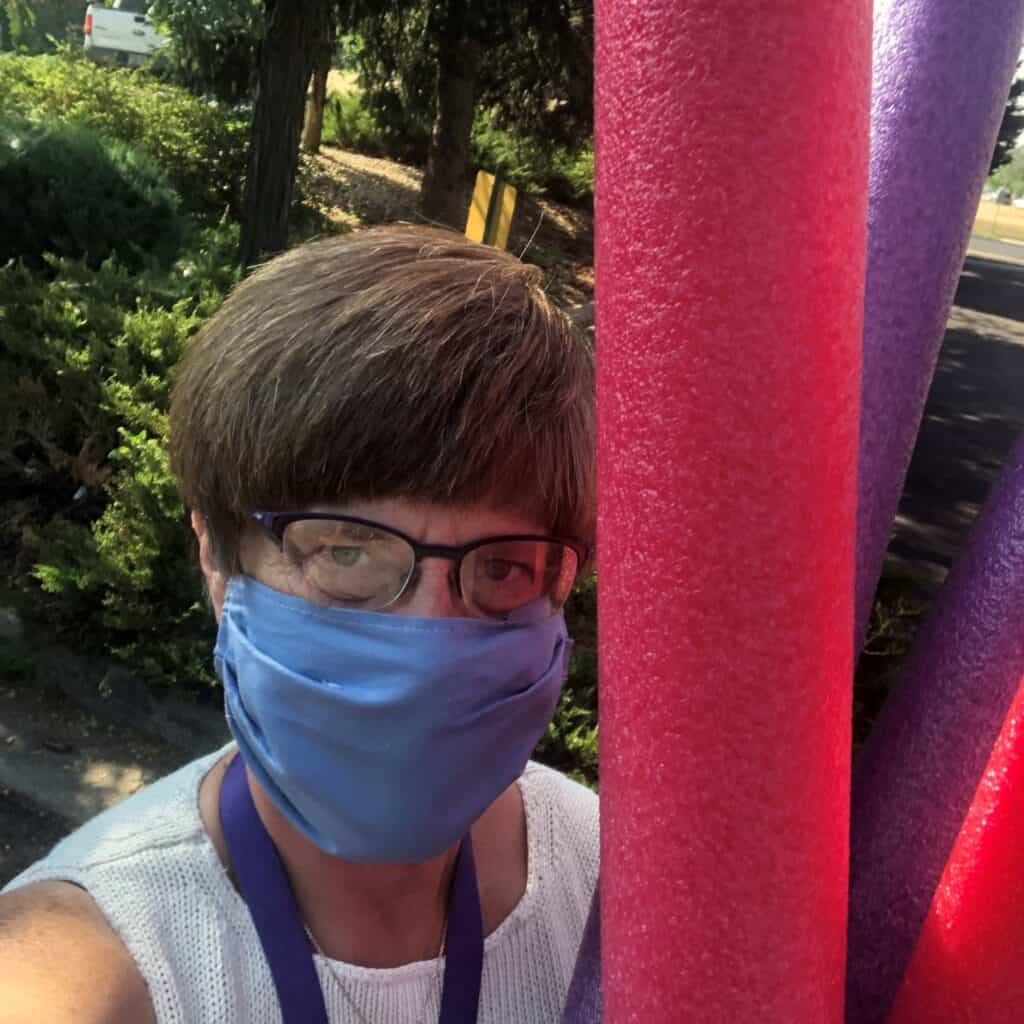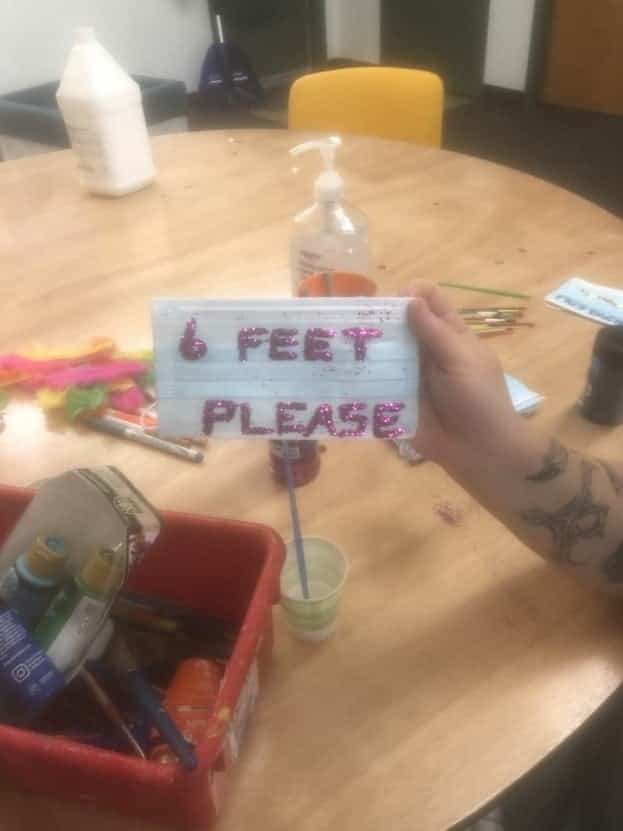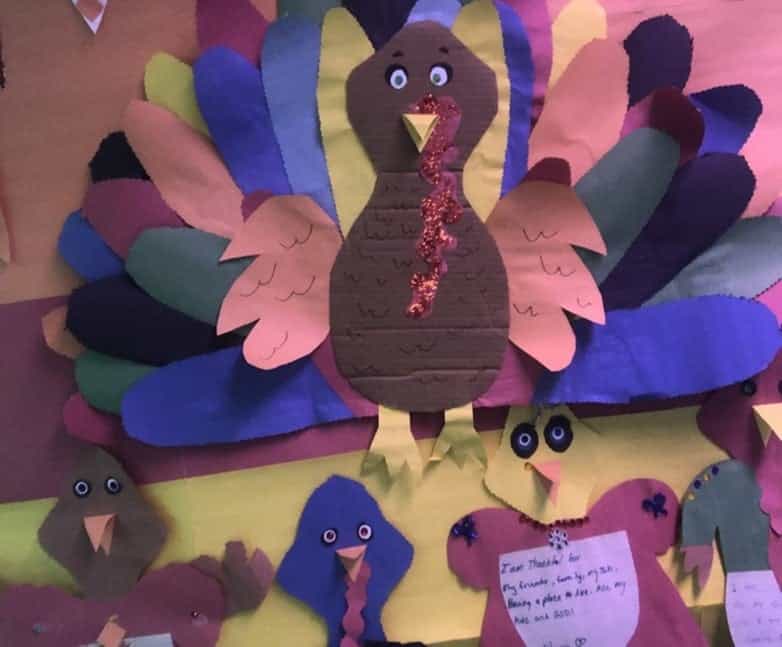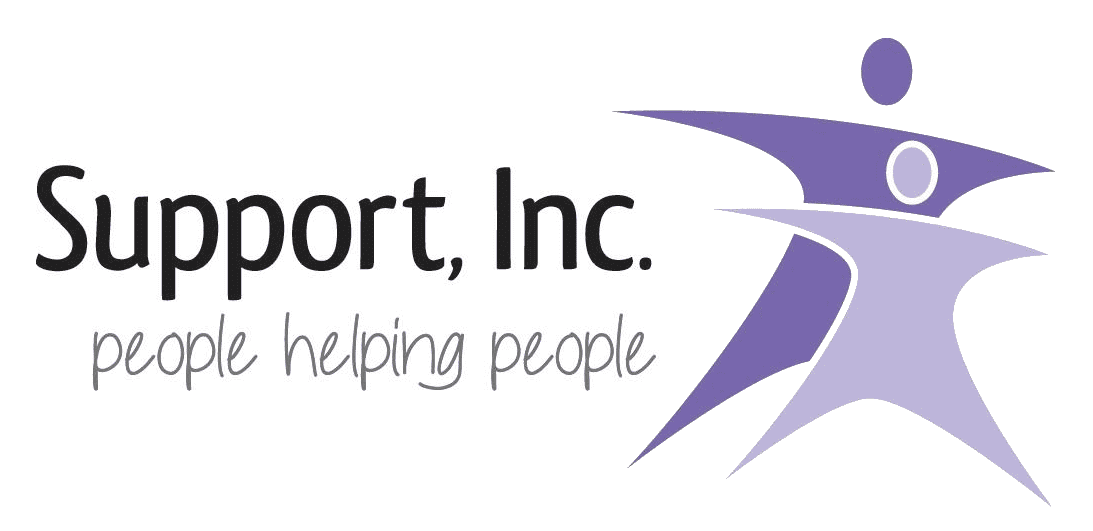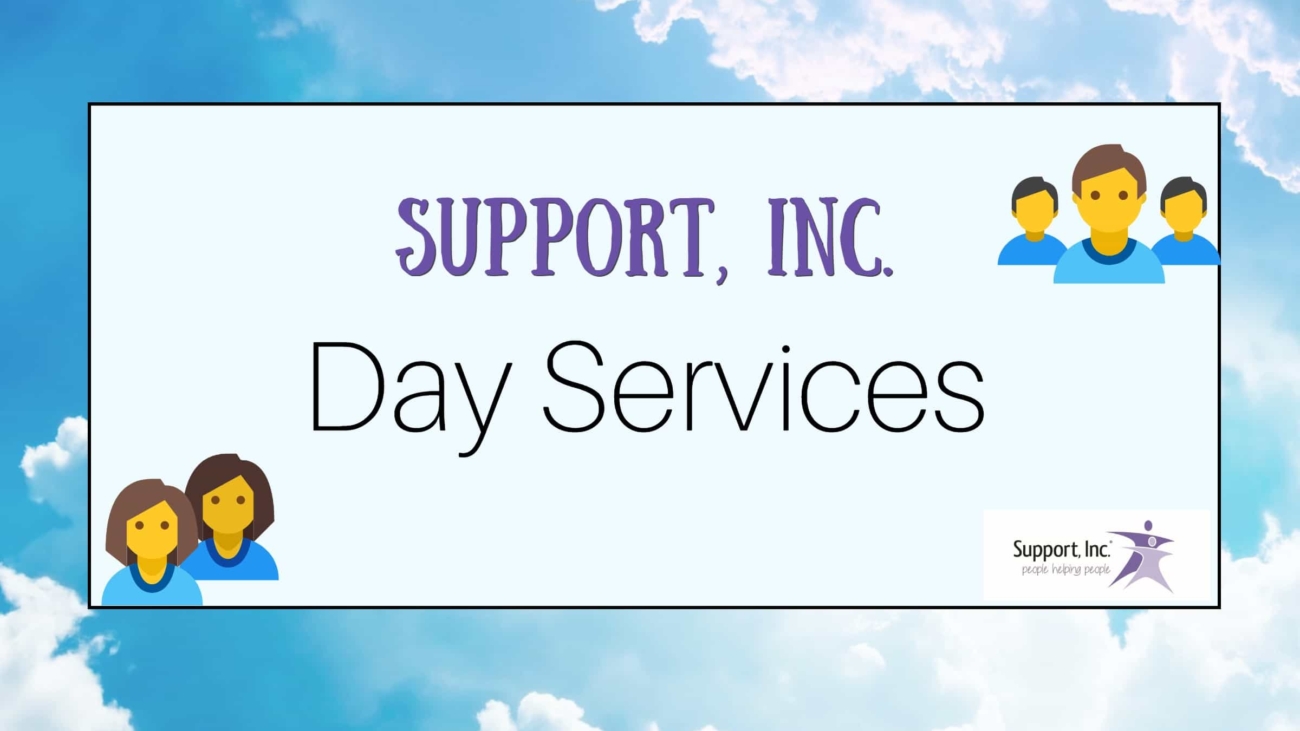As Support, Inc. Day Services has recently opened back up to full capacity, we have taken some time to reflect on the last 12-14 months and how we have operated in the midst of a pandemic. A lot has changed since March of 2020, and Day Services has gone above and beyond protecting the health and safety of the people we serve while also delivering high-quality services.
Let’s take a closer look at the evolution of these services.
To start, Support, Inc. closed it’s Day Services on March 17th, 2020 for three days. This was shortly after the NBA halted in-person games or as we like to say, “This is when things were starting to get real”. Internally, staff believed this lockdown would be short; little did we know, things were just getting started. At any rate, we closed to prevent the spread of COVID-19 and to determine next steps for our employees and PRS. Support, Inc. ultimately decided to safely reopen, to prevent disruptions to people’s schedules, including HHPs, FCGs, and those that enjoyed participating in our services.
During this three-day closure, Day Services staff started making PPE kits for internal use. These kits included gloves, sanitizer and masks, protected and distributed by our receptionist whom we lovingly referred to as Lord of the PPE kits. Outbound DSPs would come in and receive their kits and get back on the road. Employees on-site had access whenever they needed it.
In the beginning, our Day Program staff disinfected things constantly. Curt and Day Program Supervisors searched stores for disinfectant. One employee found a distillery to purchase a 5-gallon bucket of sanitizer. At the time, no one knew how the illness spread. As a result, we joined the nation-wide sanitizer manhunt to wipe down surfaces as often as we could. That’s when Miles (Day Services Supervisor) knew we were in it for the long-haul. The severity of the situation was beginning to settle in as we frantically developed safety measures to prevent the spread of the virus in our Day Program and Aurora office.
Curt had a friend making masks and made us dozens of masks for Direct Support Professionals (DSPs) and other employees. Pressure began to mount as we pushed forward to make and collect as much PPE as possible. By mid-March, the grocery stores dried up with limited food and supplies. Day Program Supervisors took it upon themselves to begin counting masks, gloves and gowns everyday, to ensure staff had the supplies they needed to operate safely in the building. The first 2-3 months felt like an endless search for PPE, navigating a new world full of uncertainty while trying to keep staff and PRS as safe as possible.
While all of this was happening, Support, Inc. was trying to ramp up it’s Community Access Program. Our Day Services and Clinical Team learned the art of flying plane as we’re building it. Soon after things began shutting down, these two teams came together to assess immediate needs-who needs a DSP now, who needs a session online and how can we manage these needs in a safe and efficient manner. Daily meetings took place everyday for months to meet the needs of the people we serve and their families.
Our Clinical Team prioritized social and emotional needs, taking into consideration the boredom and isolation that would slowly settle in overtime. Given the evidence-based articles and research we reviewed, the team focused on preventative tactics to help our PRS manage their emotions.
Another action step we took on the front-end was securing tablets for PRS. Miles set these up with Zoom and distributed close to 50. DSPs tranposrted the tablets to consumer homes for individual therapy sessions and also for our folks to join online groups. DSP would take it there. One clinician reflects on this period as being “very creative despite the circumstances. It’s hard to be creative when you’re freaked out, but nonetheless we forged forward”.
The beginning of the pandemic is marked with Zoom and learning how to use this technology that was so new to so many people. A lot of the education we offered centered around the use of technology and how to maximize these opportunities for socialization. Soon enough, we were able to offer these group and private sessions from the comfort of your own home, without worry or fear of catching the virus. Day Services staff and Clinical Team members got creative together by sharing ideas to develop new groups online. These fun opportunities led to an influx of participation online, so we could continue the good work we do on the internet instead. Moving and Grooving was born during this period, along with a few of our other hallmark groups. In addition, Chris made a PowerPoint on germs, health and safety. Plain Language was utilized often to ensure everyone understood new protocols and procedures.
As we learned to navigate Zoom, the weather was beginning to warm up. Outside, it was easier to practice social distancing and to make games with these lessons. We also taught mask-wearing, hand-washing and other basic hygiene skills. LIFE Club began with the idea of practice around social distancing, wearing masks, etc. It is worth noting that all of our online programming was as a result of the pandemic. Nothing was online before then. The attitude went from being “This is impossible-it can’t be done online” to “Yes, this can be done and we will make it work”. Touching Stories serves as a great example of our efforts to adapt a group from in-person to online. *explain touching stories?* Ultimately, we practiced the necessary skills to stay safe during the pandemic along with preventative measures for curtailing mood instability, irritability and boredom.
The groups Support, Inc. as developed have turned out to be very successful. For instacnce, one PRS was stranded in another state for a few weeks. Thanks to Zoom, she was able to access our online programs.. Another client was traveling and reported feeling as if she stayed connected even when they were out of state. All PRS were welcome to join our groups and they enjoyed the positive benefit of staying in touch.
We received mixed reactions as PRS learned to adapt to our new reality. Some individuals still wanted services in person while others chose to interact online. Clinicians and Day Service staff related to PRS fears of catching the virus and wanting to stay as safe as possible. Luckily we can share that (spoiler alert!) in the last 14 months, there’s never been a single outbreak in our Day Program or any satellite locations at Support, Inc. Still, so much was unknown at this time, and safety remained a top priority.
In the first quarter of the pandemic, we ramped up our training program for DSPs. Support, Inc. as an agency decided early on to stay open and to not lay anyone off. Shelby drafted a training program online for new DSPs and this implemented almost as quickly as it was developed. For any trainings required in-person, we reduced these class sizes from 20 to 3. We also trained on the psychological effects of the pandemic and how to embody a DSP during the pandemic. We sensed the hesitancy of applicants to join Support, Inc. in such a tumultuous and unprecedented time. Supervisors and managers of Day Services learned how to support new employees by being transparent about their efforts to keep everyone safe. From gathering PPE and social distancing to teaching our PRS basic hygiene skills, we offered multiple ways to stay safe despite the circumstances.
Additional measures such as hand-outs for in-person visits proved to be useful, too. Our Associate Director of Quality Assurance developed a new form called What to Expect from a DSP Visit for clients, providers and FCGs. This document set the groundwork for expectations and boundaries. We also used a screening tool “Questions to ask before you go into a home”. Clinicians reported feeling like the company as a whole supported them with these materials. Screening cards were implemented and a supervisor created a Formstack screening tool for DSPs to use on their phones. If all symptoms were no, you’re good. If someone answered yes to one or more symptoms, the results were sent to the supervisor to be researched further.
One final cultural change we worked on was encouraging people to stay home when they didn’t feel well. An extra bank of sick time was created to support our staff, so if they went to get tested, we would pay them for this. We would mitigate the financial strain of having to take time off. From our Day Services staff to Clinical Team and beyond, everyone internally has stepped up to ask “What can I do to help operate safely”. Support, Inc. as a whole has taken the virus and this pandemic very seriously since Day One. We remain proud to report zero outbreaks at the organization and continue to work as safely and efficiently as possible.
For more information on the fun and engaging activities we host, please visit our website at www.supportinc.com
